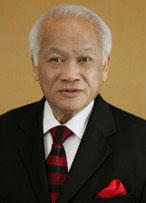(This is Part 41 of Dr. Pagtakhan’s column Medisina at Politika in Pilipino Express.)
[Editor’s Note: In February 2020, CFNet started publishing Dr. Rey Pagtakhan’s Commentary on COVID-19. Now on Part 41 of his running commentary, Dr. Pagtakhan – a retired lung specialist and former Member of Parliament – has kept the Filipino community and other CFNet readers continually informed about 1) the pandemic and its impact, 2) the scientific advances on drugs and vaccines, 3) the effectiveness of public health measures, including mass vaccination, 4) the danger of misinformation and disinformation, and 5) sound public health policy.]
Canada and the world are in the worst public health emergency in a century. And COVID-19 is not leaving us anytime soon. Its most contagious variant Omicron, which started its global appearance just two months ago has already become the dominant strain in most countries, Canada included. Its exponential spread continues to seek and multiply in every human host, adults and children alike, particularly the unvaccinated. All 10 provinces and three territories have recorded profound increase in caseloads. Its impacts are felt everywhere, most gravely when emergency room departments and ICU units have been inundated.
Compared to the Delta variant, Omicron may not cause as severe an illness but, I emphasize, it is NOT a trivial illness and it is INACCURATE to call the variant mild in nature. This is particularly the situation with the unvaccinated – the adults who have refused the jab for no valid reason and the kids below 5 years old for whom, unfortunately, no vaccine has been approved for use.
As I apprehensively stated on this site half a month ago, resurgence of COVID cases at a very rapid pace would consequentially result in 1) increased hospitalization, 2) a stressed health care system, and 3) a shortage among health care staff, among other complications.
Recent reports from CTV News have validated these apprehensions: Nicole Lampa, Carmen Wong: Internationally trained nurses in Kitchener unable to help hospitals due to lengthy certification process. Jan.11, 2022; Tom Yun, Heather Wright: We can help': Internationally trained nurses in Canada eager to work. Jan. 11, 2022; and
Anthony Vasquez-Peddie: Nurses are burning out from the COVID-19 pandemic but supports can help, experts say.Jan 12, 2022. Earlier in May 2021, I also stated on this site of the dire situation faced by nurses and doctors.
To the issue of burnout among nurses, Dr. Nita Chhinzer, associate professor of leadership and organizational management at the University of Guelph, is quoted by CTV News: "Burnout is the end of a very long duration of stress…It results in physical, mental, emotional and cognitive depletion of your resources. As nurses experience high levels of stress amid increases in hospitalizations for COVID-19 across Canada due to the rapid spread of the Omicron variant – the latest challenge in a two-year struggle against the virus – organizational changes can help front-line health-care workers cope with burning out.”
One approach to solving the imminent crisis is to engage “internationally trained nurses” as has been raised in the media. I am confident human resources department could figure this out, but crucial is the buy-in from the accrediting body and the government. Accreditation and budgeting are interlinked and needed.
Assuming the immediate though tentative approach is established, the long-term planning and the will to proceed must also be established in good faith on the part of all concerned.
The few foreign-trained nurses who had been interviewed have identified the crucial barrier: the certification or accrediting process is lengthy, complex, and costly. Not mentioned, but I submit is critical to success, would be the need for an alternative source of financial support to the family while undergoing and fulfilling the requirements for accreditation. One model I suggest be looked at is one akin to medical internship and residency programs.
Foreign medical doctors who are not yet fully accredited could also be engaged through an orderly process. Most of them work already as clinical assistants but no known pathway to full accreditation. They appear trapped in perpetual apprenticeship. Medical regulatory bodies, medical schools and governments could begin the process to have them fully enlisted and registered eventually. They shall find the means. The Canadian Medical Association should be involved. CMA president Dr. Katharine Smart has recently remarked in a broadcast interview her concern the health care system may well be “unable to recover.”
Speaking of the CMA, I recall an issue I had, a little over 35 years ago, with the Association’s resolution: “That the government of Canada be urged to co-operate with the CMA to review immigration processes with a view to restrict medical immigration to those physicians who satisfy perceived needs in the community.” Alarmed, I sent a Letter to the Editor of the Winnipeg Free Press outlining my response. Upon the Editor’s invitation, I expanded it into a full debating position paper which was published on September 14, 1986 as a half-page coverage (page 7), with equal space reserved for the CMA, under the heading Debating Foreign Doctors. I signed off in my individual capacity as a professor of pediatrics and child health at the University of Manitoba Faculty of Medicine. I share excerpts from it for its teaching value as Canadian provinces (health delivery being a provincial jurisdiction) are challenged to visit anew and enlist more fully the untapped foreign-trained nurses and doctors:
“Seemingly innocuous to the unsuspecting public, the implication of the resolution became clear when the outgoing CMA President revealed during the press interview the following arguments, namely, foreign medical doctors: (1) will take jobs away from Canadian medical graduates; (2) reduce the number of admission spots in Canadian medical schools; and (3) take way medical school faculty seats from Canadian citizens.”
Rather than viable reasons, I consider them rationalizations. Responding to the first two rationalizations, I wrote: “The federal government had already rejected in its report to Parliament the misconception that “immigrants take jobs way from Canadians.” Self-employed immigrant physicians create jobs and services. That entry of foreign medical doctors would ultimately reduce the current number of admission spots in our medical schools is speculative and failed to take into account physicians’ incapacity, retirement and emigration.”
To the third rationalization, I said: “Our medical schools follow a rigorous selection process when recruiting teachers, researchers and clinicians. The process places a premium on academic excellence, investigative mind and clinical skills. It is to their credit that our medical schools have attracted eminently qualified foreign medical doctors, many of whom have occupied leadership positions. Medical excellence knows no geographic boundaries.”
I then added “other compelling reasons” why we should welcome foreign graduates: “Canada is a multicultural nation. A physician’s knowledge of his or her patient’s culture and language facilitates doctor-patient rapport and ensures the taking of an accurate history of the patient’s complaint – an essential step in making an accurate diagnosis, formulating a treatment strategy, and ensuring patient compliance with a treatment regimen.”
I summarized: “Would it not be desirable to have available a continuing varied pool of qualified physicians of various ethnocultural backgrounds to ensure and facilitate the delivery of quality medical care to all citizens and newly arrived immigrants? The medical profession and the CMA would be well advised to remember the multicultural character of Canada – a national consciousness now enshrined in the Charter of Rights and Freedoms. Impeccable credentials, competency and commitment to service - not speculative rationalizations - ought to be the paramount criteria for their entry into Canada, irrespective of color, culture and country of origin.
It is hoped the new executive of the CMA will exercise the wisdom of leadership and rescind the ill-conceived and ill-studied resolution. To allow the proposed restrictive immigration policy for foreign physicians …would threaten international goodwill, undermine our stature in international health and bring disrepute to Canada’s non-discriminatory and universally fair immigration policy.
Foreign medical doctors will continue to enrich the high academic standards of our medical schools and hospitals; contribute to the advancement of medical science; and will continue to share the responsibility for health care for all Canadians while nurturing our multicultural character as a nation.”
Fully enlisting foreign-educated nurses and doctors would be a win-win for all concerned and the health care system stands to get not only immediate infusion of nursing and medical support but long-term and lasting. The pandemic would likely be with us for a little while, what with the exponential surge and the continuing mutation of the COVID virus and potential emergence of newer variants of concern with even more unwelcome characteristics: more contagious, more deadly, and more evasive of immunity. Let us hope not. But hope is not a strategy; advanced preparedness is. Time to enlist the untapped internationally educated nurses and doctors.














